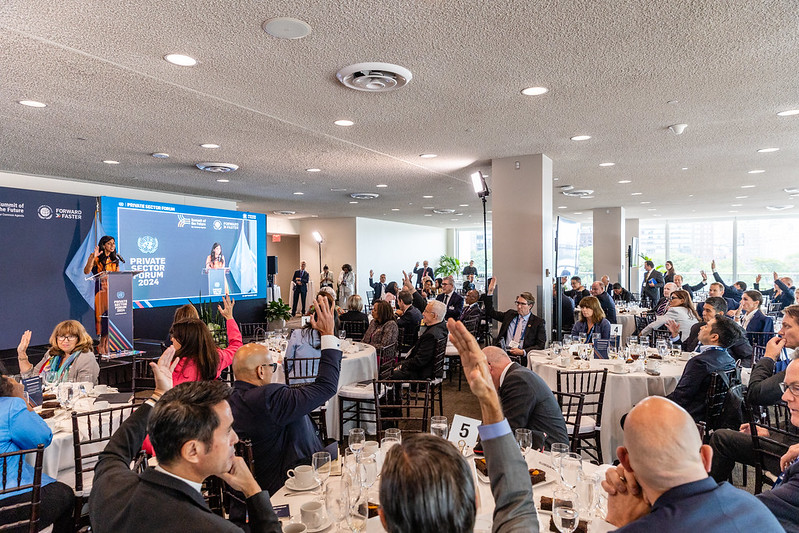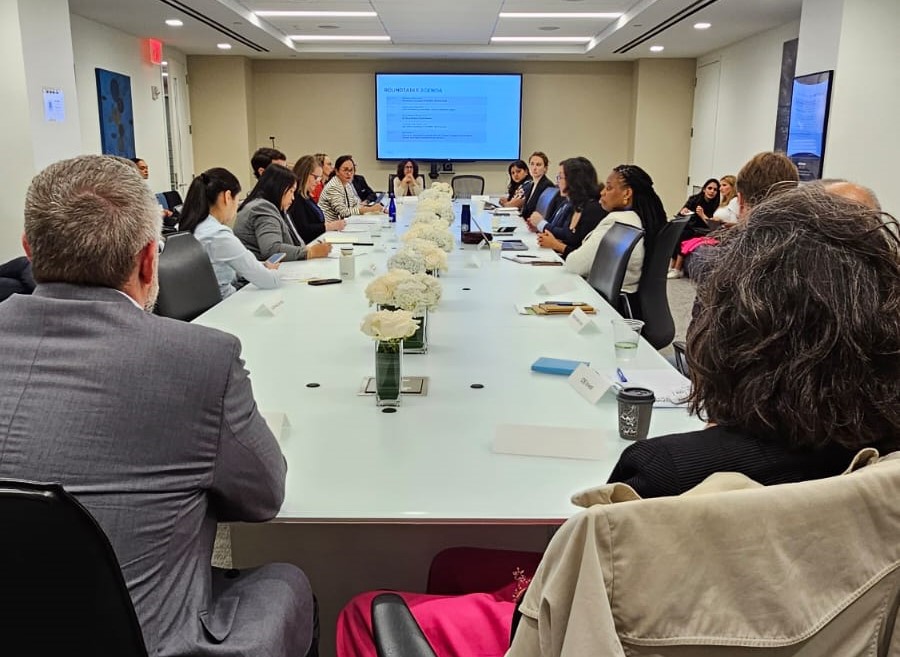Quarterly Multi-stakeholders Dialogue on Business & Human Rights – Series 4: “Children’s Rights and Business Principles (CRBP) Implementation in Sustainable Supply Chain”
Everyone has the right to work, work without any discrimination, equal pay, have the right to social protection including his/her family stated in UN Declaration of Human Rights & International Labour Organization (ILO)’s principles.
In Indonesia, ILO and UNICEF statistics indicate that over 5% of children aged 5-17 is in child labour, over 60% are engaged in agriculture. Also, 1 in 5 rural children attending primary school does not move on to junior secondary, in contrast to 1 in 10 urban children and less than 67% of children under 5 are registered at birth (UNICEF Indonesia research report 2016).
The Quarterly Multi-stakeholders Dialogue on Business & Human Rights – series 4 took place on Wednesday, 21st June 2017 at Binus University International – Jakarta, with main agenda was to share different perspective from business, government, CSOs, and academia sides regarding main topic “Children’s Rights and Business Principles (CRBP) Implementation in Sustainable Supply Chain”. Globally, CRBP is a principle developed by UNICEF, Save the Children, and UN Global Compact.
Cargill Indonesia is one of the palm oil corporations that have implement CRBP. In near future, children’s rights issues could be solved if corporation and private sectors have awareness to make work environment that safe for children. UNICEF and Ministry of Women and Empowerment and Child Protection, KPPPA is raising awareness within the company, business association, to initiate dialogues what we do today with other partners.
On October 2016, UNICEF Indonesia published research report on “Palm Oil and Children in Indonesia: Exploring The Sector’s Impact on Children’s Rights”, in this dialogue Sagita Adesywi, Partnerships (CSR) Officer – Children’s Rights and Business Principles of UNICEF Indonesia shared eye-opening facts. There are 7 keys impact areas: maternity protection and breastfeeding, child care, health and nutrition, water sanitation and hygiene, education, child protection, and child labour and young worker.
In reality, according to ILO it is estimated that over 1.5 million children aged between 10-17 years are working in the agricultural sector. The three provinces with the largest incidence of child labourers in agricultural sector are North Sumatra (155,196 children), Central Java (204,406) and East Java (224,075). The poor quality and availability of schools be partly responsible for to a steady supply of child labourers in tobacco plantation, rubber plantation and palm oil.
Colin Lee, Corporate Affairs Director of Cargill Tropical Palm Singapore, shared a good initiative and best-case practice on trying their best fulfill basic human rights in the Cargill’s plantations. Children who live at plantation are living in safe environment to play and learn at school. Cargill is also giving attention to female workers, to always have good hygiene and check their health safety. Moreover, Colin Lee said Cargill is striving to demonstrate measurable progress against the supply chain issues.
Furthermore, Dr. Ahmad Sofian, S.H., M.A. lecturer SCC Fundamentals of Business Law from Binus University International as responder presented his point of views from academia perspective. He explained that business has relevance with human rights: it provides innovation and service in improving the living, business activists disrupt human life, forcibly displace local people and conspire with the authorities in carrying out forced evictions or using violent. Those are some of challenging issues that business has in scope of human rights.
During discussion session was moderated by Ravin Trapshah Ismail, Senior Manager Sustainability and Stakeholder Engagement of Asia Pulp and Paper (APP Group). Participants had their opportunity shared their opinions, concerns and suggestions. He emphasized that Multi-stakeholders Dialogue is a platform to increase understanding and relations among stakeholders to gather the solutions and human rights issues, and children’s rights is one of the crucial issues.
This dialogue was succeeded to enhance the awareness on the importance of children’s rights as we realize that there are still many companies violate those rights deliberately. Many people aware about children’s rights but not fully implemented in palm oil plantations company Indonesia. Therefore, the collaboration with government, corporation, academia and CSOs become strategically important and this collaboration will able to work hand in hand to promote and indirectly ensure the human rights fulfillment in every layer of business.
This quarterly multi-stakeholders dialogue was part of jointly program funded by European Union (EU) organized by IGCN, in collaboration with Oxfam and International NGOs Forum on Indonesian Development (INFID). The event was supported by Teach for Indonesia (TFI) of Binus University International. The dialogue opened by Johan. S. Kom., M.M. Vice Rector Student Affairs and Community Development of Binus University International. It was succeed attended by 42 participants from multi-stakeholders such as government, business, CSOs, and academia
Further information, contact: Alysa – bhr@indonesiagcn.org





